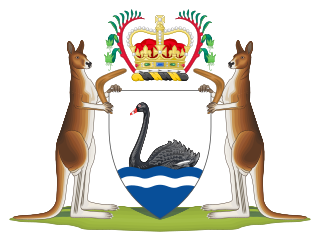
The premier of Western Australia is the head of government of the state of Western Australia. The role of premier at a state level is similar to the role of the prime minister of Australia at a federal level. The premier leads the executive branch of the Government of Western Australia and is accountable to the Parliament of Western Australia. The premier is appointed by the governor of Western Australia. By convention, the governor appoints as premier whoever has the support of the majority of the Western Australian Legislative Assembly, the lower house of the Parliament of Western Australia. In practice, this means that the premier is the leader of the political party or group of parties with a majority of seats in the Legislative Assembly. Since Western Australia achieved self-governance in 1890, there have been 31 premiers. Roger Cook is the current premier, having been appointed to the position on 8 June 2023.
The South Australian Company, also referred to as the South Australia Company, was formed in London on 9 October 1835, after the South Australia (Foundation) Act 1834 had established the new British Province of South Australia, with the South Australian Colonization Commission set up to oversee implementation of the Act.

Brougham Place Uniting Church is a Uniting church located at Brougham Place, North Adelaide, South Australia.

Sir Thomas Elder was a Scottish-Australian pastoralist, highly successful businessman, philanthropist, politician, race-horse owner and breeder, and public figure. Amongst many other things, he is notable for introducing camels to Australia.
The following lists events that happened during 1883 in Australia.
Lieutenant general is the second-highest active rank of the Australian Army. It was created as a direct equivalent of the British military rank of lieutenant general, and is considered a three-star rank.
The Chief Justice of New South Wales is the senior judge of the Supreme Court of New South Wales and the highest-ranking judicial officer in the Australian state of New South Wales. The Chief Justice is both the judicial head of the Supreme Court as well as the administrative head, responsible for arranging the business of the court and establishing its rules and procedures.

Edward Stephens was one of the earliest settlers in the Colony of South Australia. He became a businessman in Adelaide, and was one of the founders of Methodism in South Australia.
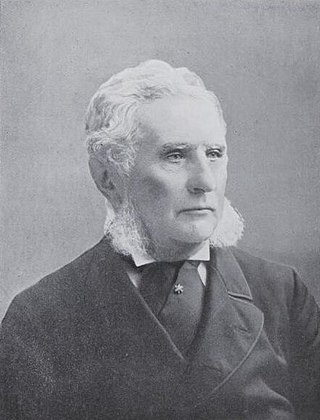
Alexander Hay was a South Australian merchant, pastoralist and politician.
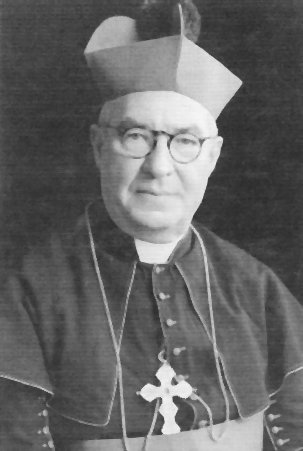
Andrew Killian was an Irish clergyman and the fourth Archbishop of Adelaide. Born and ordained in Ireland, Killian moved to Australia, where he became Bishop of Port Augusta before succeeding Robert Spence as Archbishop of Adelaide.
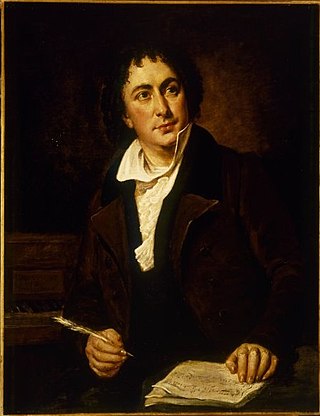
This is a list of Australian musical composers.

Augustine Stow, J.P., was a politician in colonial South Australia, member of the South Australian House of Assembly for West Torrens from November 1862 to 1864, and for Flinders from October 1866 to 1868.
William Roby Fletcher, commonly known as Roby Fletcher or W. Roby Fletcher, was a Congregational minister and vice-chancellor of the University of Adelaide.
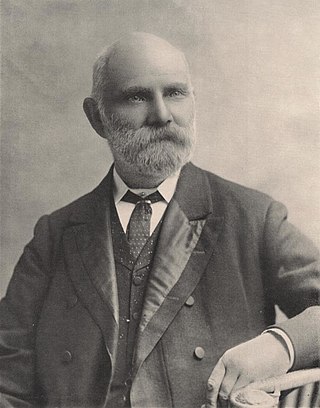
Peter Johns was an Australian mechanical engineer who founded the company Johns & Waygood.
The Country Party was a political party in South Australia in the first part of the 20th century. It was formed out of the Farmers and Settlers Association in September 1917 to represent the association's interests in parliament. The party endorsed seven candidates in the 1918 election, with two elected. In the early years, their representatives were usually identified as Farmers and Settlers' Association representatives or as the parliamentary wing of the Farmers and Settlers' Association, but referred to in some sources as Country Party, Independent Country Party or independent members. The Country Party name was formally adopted after the 1921 election.
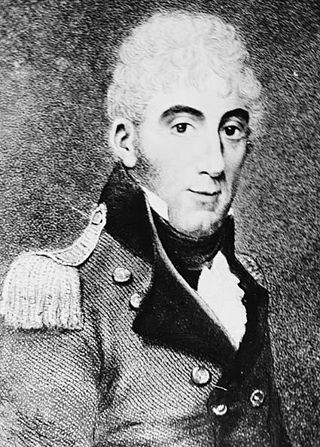
The Judge Advocate of New South Wales, also referred to as the Deputy Judge Advocate was a ranking judicial officer in the Colony of New South Wales until the abolition of the role in 1823.
Cheltenham Cemetery, originally the Port Adelaide and Suburban Cemetery, Cheltenham but known as Woodville Cemetery, was established in 1876 by the Port Adelaide Corporation. Funds were allocated for the cemetery by the South Australian colonial administration in 1874. The first recorded burial was Mrs. Hannah Mussared on 27 Jul 1876. There is an Islamic cemetery located nearby too.















